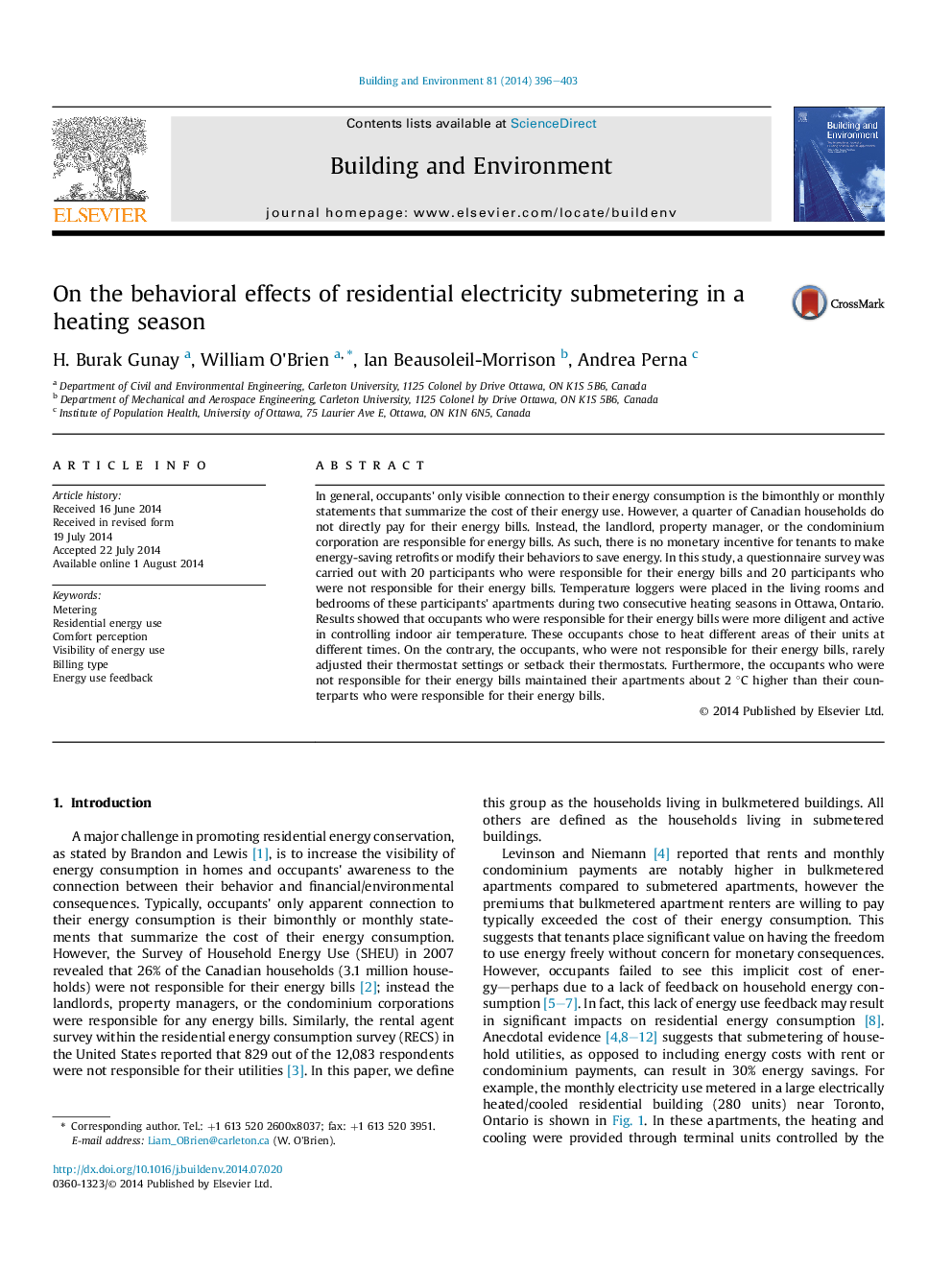| Article ID | Journal | Published Year | Pages | File Type |
|---|---|---|---|---|
| 6700412 | Building and Environment | 2014 | 8 Pages |
Abstract
In general, occupants' only visible connection to their energy consumption is the bimonthly or monthly statements that summarize the cost of their energy use. However, a quarter of Canadian households do not directly pay for their energy bills. Instead, the landlord, property manager, or the condominium corporation are responsible for energy bills. As such, there is no monetary incentive for tenants to make energy-saving retrofits or modify their behaviors to save energy. In this study, a questionnaire survey was carried out with 20 participants who were responsible for their energy bills and 20 participants who were not responsible for their energy bills. Temperature loggers were placed in the living rooms and bedrooms of these participants' apartments during two consecutive heating seasons in Ottawa, Ontario. Results showed that occupants who were responsible for their energy bills were more diligent and active in controlling indoor air temperature. These occupants chose to heat different areas of their units at different times. On the contrary, the occupants, who were not responsible for their energy bills, rarely adjusted their thermostat settings or setback their thermostats. Furthermore, the occupants who were not responsible for their energy bills maintained their apartments about 2 °C higher than their counterparts who were responsible for their energy bills.
Keywords
Related Topics
Physical Sciences and Engineering
Energy
Renewable Energy, Sustainability and the Environment
Authors
H. Burak Gunay, William O'Brien, Ian Beausoleil-Morrison, Andrea Perna,
